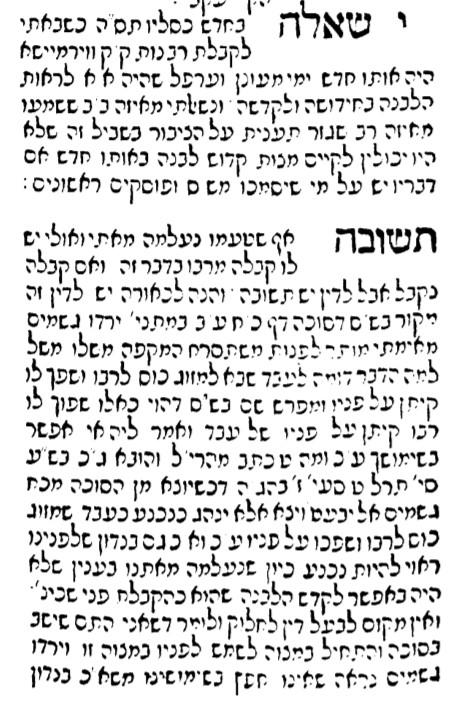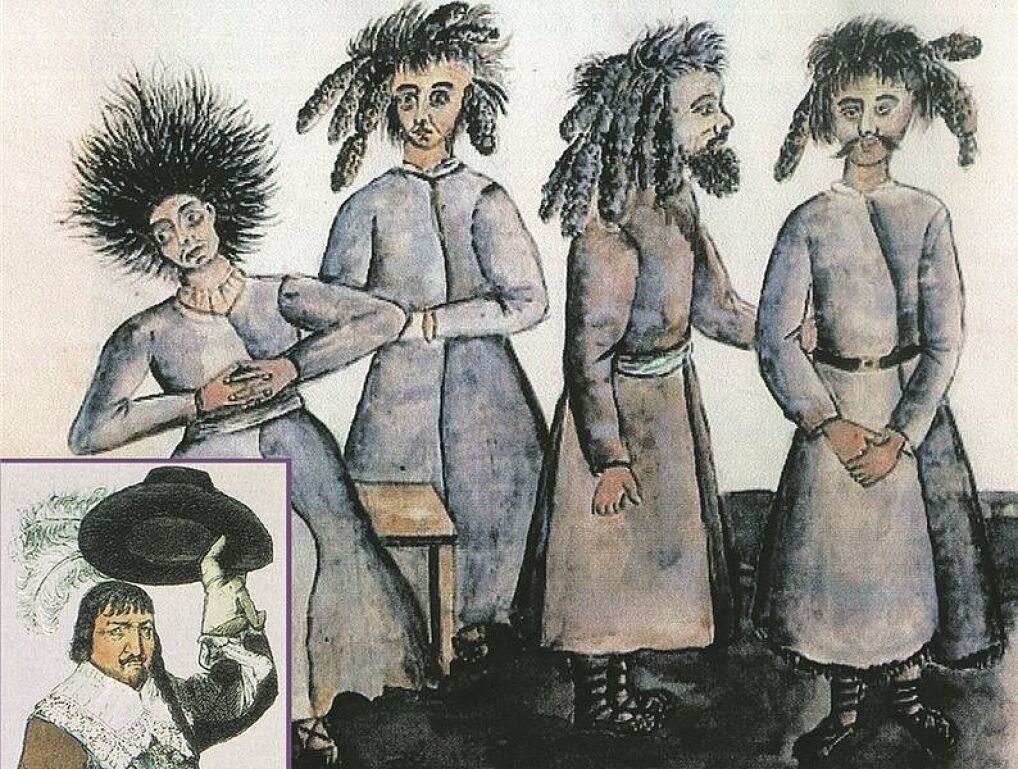Sukkah 29 a-b.
Kislev 12, 5782. November 16, 2021
1- We began with the rather interesting Psak of a Rav concerning a ספק ממזר. It surely takes a lot of guts to declare that a child is ‘like Moshe Rabeinu’ and will be born after 6 months only. Nu nu.
Who are we to comment on Rabbanim and the tough issues they encounter.
2- Lunar and solar eclipses. The Gemara states they occur when humans are not acting properly and the eclipse is not a good sign.

Lunar Eclipse
The ancient question is how can something that’s predetermined be a sign or result of human behavior?

Explanation of the Rebbe. Here. LK”S 15, page 7 and on.
The central point is:
The idea that “when the luminaries are stricken it is an ill omen” is: When an eclipse occurs it is a sign that this time is dominated by a “mazal ra” — bad luck, or literally, an evil constellation. It is a time that has a predilection for tragedy. That, in turn, causes it to be a time more prone to being punished for the “improper conduct”

Lunar Eclipse
The Rebbe writes in footnote 19 that his explanation is based on the words of (among others) the עיון יעקב which is the classic commentary on עין יעקב authored by Reb Yakov Reisher.
His books span many subjects in addition to the above.
2- Speaking of the עיון יעקב in regards to solar and lunar eclipses, we mentioned another interesting question posed to Reb Yakov Reisher. This is in his שו”ת שבות יעקב. Part 2, 10.

He writes: ‘When I arrived in Worms in 1714 to accept the Rabbinical position, I was asked by some who claimed that a certain Rov decreed a fast day because they could not perform קידוש לבנה due to the clouds blocking its view’.
He continues to debate this idea based on our Gemara’s parable, [that when rain occurs on Sukkos, causing the sitting in a Sukkah to be unpleasant] “like the master pouring water in the face of his unworthy servant, saying ‘I have no interest in your service’.”

The Maharil adds that when leaving the Sukkah during a rain downpour, one should not slam the door in anger. Rather, should be humbled by the ‘slap’ received from his master and walk out silently.
Using this משל, perhaps we should fast when clouds cover the moon and is not allowing us to perform the Mitzvah of קידוש לבנה.
His conclusion however is that we should not enact a fast for such a case.
3- Speaking of Reb Yakov Reisher, we discussed his commentary on the Shulchan Aruch חק יעקב which in many prints appears at the bottom of the page.
The Alter Rebbe quotes him frequently and we mentioned, in one place of a peculiar occurrence, he disagrees with him.
The case is about a person who didn’t sell or annul, מבטל, his חמץ before פסח. What happens if this person CV passes away in middle of פסח? The inheritors of his assets are now faced with an interesting problem. Do they have to burn his חמץ? Is it theirs?

The חק יעקב says that since this chametz is a דבר אסור, they never inherited it. The איסור חמץ creates a situation that the חמץ, in a sense, becomes ownerless. Since it has no monetary value it cannot be sold or passed on in a ירושה. Thus, there is no obligation for children to deal with it. [although it’s best that they get rid of it but cannot make a ברכה, since it’s not their chometz].
See here. Orach Chaim 435, 2.
The Alter Rebbe disagrees with this פסק. In short, a דבר איסור is not ownerless at all. No one can take it away from the owner. It’s just that the Torah prohibits the use and הנאה from such items. Therefore this חמץ, upon the passing of this שלומזל, is automatically transferred to his inheritors and they must deal with it.
This topic is a very complicated Sugya and much discussed by many.
4- Our Gemore ends the second פרק enumerating actions that are not in accordance to Torah, not civil or mentshlich and cause RL for people to lose everything and become impoverished.
One is פוסקי צדקה. Simply meaning to pledge to donate to charity and not paying.
We related the humorous story of the chosid of the Rupshitzer Rebbe who was looking for a way for his wife to go to Gan Eden….

The Maharshah says it refers to the community leaders that start a charity campaign with a high number to reach. They then assess how much each member should give to charity and end up not giving their share. The high number was to entice others to give!
In other words it means:
Pledging with no intention of actually paying themselves but just done in order to entice others to give.
We mentioned some Poskim that discuss this issue. Can one bid, for example, at an Aliya auction, when the intent is for others to raise their bids?
The Minchas Yitzchok 3,77, rules that it is prohibited and quotes an interesting story with Reb Shimon Ben Shotach.
Here it is from Medrash Rabo. Breishis 91.
תָּנֵי שְׁלשׁ מֵאוֹת נְזִירִין סָלְקִין בָּעֲיִין לִמְקָרְבָה תְּשַׁע מְאָה קוּרְבָּנִין בְּיוֹמֵי דְּשִׁמְעוֹן בֶּן שָׁטַח, לִמְאָה וְחַמְשִׁין מָצָא לָהֶם פֶּתַח וּמְאָה וְחַמְשִׁין לָא מָצָא פֶּתַח.
סָלֵיק רַבִּי שִׁמְעוֹן בֶּן שָׁטַח גַּבֵּי יַנַּאי מַלְכָּא, אֲמַר לֵיהּ תְּלַת מְאָה נְזִירִין סָלְקוּ בָּעֲיִין לִמְקָרְבָה תְּשַׁע מְאָה קוּרְבָּנִין וְלֵית לְהוֹן, אֶלָּא יְהֵיב אַתְּ פַּלְגָּא מִן דִּידָךְ וַאֲנָא פַּלְגָא מִן דִּידִי וְיֵזְלוּן וִיקָרְבוּן, יְהַב יַנַּאי מַלְכָּא פַּלְגָא מִן דִּילֵיהּ וַאֲזַלּוּן וְקָרְבוּן. אֲתוֹן וַאֲמָרִין לִשְׁנָא בִּישָׁא לְיַנַּאי מַלְכָּא עַל שִׁמְעוֹן בֶּן שָׁטַח, תֶּהֱוֵי יְדַע דְּכָל מַה דְּקָרְבוּן מִדִּידָךְ קָרְבוּן, בְּרַם שִׁמְעוֹן בֶּן שָׁטַח לָא יָהֵיב מִן דִּידֵיהּ כְּלוּם.
כָּעַס יַנַּאי מַלְכָּא עַל שִׁמְעוֹן בֶּן שָׁטַח. שְׁמַע דְּהוּא כָּעֵס עֲלוֹהִי, צְרַת [נסח אחר צרח] לֵיהּ וַעֲרַק, לְבָתַר יוֹמֵי הֲווֹן בְּנֵי אֱנָשָׁא רַבְרְבִין מִן מַלְכוּתָא דְּפַרְסָאֵי יַתְבִין נָגְסִין עַל פָּתוֹרָא דְּיַנַּאי מַלְכָּא, אֲמַרוּן לֵיהּ מָרִי מַלְכָּא נָהֲרִין אֲנַן דַּהֲוָה הָכָא חַד סַב וַהֲוָה אֲמַר לָן מִילֵי דְאוֹרָיְיתָא, אֲמַר לַאֲחָתֵיהּ שְׁלַחִי בַּתְרֵיהּ וְאַיְיתִיתֵיהּ. אֲמַרָה לֵיהּ הַב לִי מִלָּא וּשְׁלַח לֵיהּ עִזְקָתָךְ, וְהוּא אָתֵי. יְהַב לָהּ מִלָּא וּשְׁלַח לֵיהּ עִזְקָתֵיהּ וַאֲתָא.
מִדַּאֲתָא יְתֵיב לֵיהּ בֵּין מַלְכָּא לְמַלְכְּתָא. אֲמַר לֵיהּ, לְמָה עֲרַקְתְּ, שְׁמָעִית דְּמָרִי מַלְכָּא כָּעֵיס עֲלַי וּצְרַח לִי מִינָךְ דְּלָא תִקְטְלַנִּי וְקַיְימַת הָדֵין קְרָיָא (ישעיה כו, כ): חֲבִי כִּמְעַט רֶגַע עַד יַעֲבָר זָעַם,
אֲמַר לֵיהּ לְמָה אַפְלֵית בִּי. אֲמַר לֵיהּ חַס וְשָׁלוֹם לָא אַפְלֵית בָּךְ, אֶלָּא אַתְּ מִמָּמוֹנָךְ וַאֲנָא מִן אוֹרָיְיתָא, דִּכְתִיב (קהלת ז, יב): כִּי בְּצֵל הַחָכְמָה בְּצֵל הַכָּסֶף.
Free translation:

It was taught, 300 Nazirim came to sacrifice 900 Karbanos in the days of Shimon Ben Shotach. (Each Nazir needs to bring 3 קרבנות).
For 150 of the Nazirim he found a way to annul their נזירות. For the other 150 he could not.
He went to King Yannai (his brother in law) and told him 300 Nazirim needed to sacrifice 900 karbanos but they didn’t have the means. He suggested that he will give half and King Yannai will give the others. Yannai gave half (450) and the (150) Nazirim offered the sacrifices.
Someone then told Yannai about Shimon B Shotach, how all the sacrifices were from Yannai and none from Shimon. Yannai became angry and yelled at him, Shimon then ran away.
After a time, some dignitaries of the Persian Kingdom were eating with Yannai and they said to him, “Dear King, we remember that there was an elder sage who would say ideas of Torah?”
Yannai then told them the episode of the sacrifices, they then asked to bring Shimon back. Yannai gave his word that Shimon would not be harmed and Shimon returned and sat between King and Queen.
Yannai asked Shimon why he had fled. He replied that he heard the king was angry at him and did not want the King to kill him, thereby fulfilling the verse in Yeshaya 26:20 ‘Hide inside for a small moment, until the anger passes’. Yannai then asked him why he had fooled him. Shimon responded that he had not fooled him – “you gave the for 150 from your money and I the gave the 150 (an annulment) from (my) Torah”.
We see from this story that only because Reb Shimon Ben Shotach fulfilled his part by using a Torah ‘fulfillment’ was it acceptable to induce Yannai to give his share. If just to raise the bids of others, with no intention of winning the bid and paying up, it would not be acceptable.
